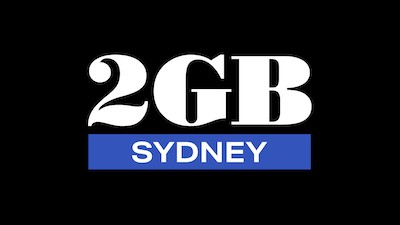Eight keys to winning the Christmas programming battle

Okay, you have decided to go all-in on Christmas programming. That’s great. Congratulations. Now what?
The Christmas Music Station is the ultimate station everyone at work can agree on. Its appeal is universal. It puts listeners in a good mood. It’s a shared interest that unites otherwise different interests.
But you won’t win Christmas just by playing the music, and you can’t capitalize on the gains if you haven’t planned a strategy for December 26 and beyond.
When considering whether Christmas music programming is a solution for your brand, realize that it is a short-term, limited time event. On December 26, or shortly after, ratings results show that most listeners generally return to their previous station of choice.
But there’s another benefit that can’t be measured. It adds a sense of specialness to your station, an urgency. And as much as you might wring your hands over it, in the long run, it won’t negatively affect the overall brand.
8 Tips To Win Christmas Programming
If you’re planning to compete for the Christmas position, here’s how to win it: Get there first and get there big. all-Christmas Going is an effective tactic, and it’s one you should consider. Even if you have to go earlier than you think makes sense. Stake your claim to the position as far in advance as necessary.
You can’t afford to be second or third station in, especially if another station is known for it already. The first one in will get more attention and publicity. And all those complainers that “it’s too early”? Those complaints are okay. At least they know you for it!
But: If someone is already all-Christmas, don’t let it scare you away.
First, nobody “owns” the Christmas music advantage. And more and more, it’s becoming clear that there is room for multiple stations playing Christmas music in a market. According to Nielsen:
Many AC stations that long ago secured the Christmas position in their market typically dominate in the ratings. (But) because a lot of people like all-holiday music, it’s not just one format that can do it and have success.
You, of course, think of Christmas as being a music proposition. And if there are stations that are playing all Christmas music, it raises the question of whether you should play any at all. Playing one or two songs an hour may be just enough to disrupt your regular listeners and not enough to satisfy a listener that would be attracted to Christmas.
So what’s a programmer to do?
Programming isn’t just about playing songs. It’s about the mood and attitude you create, not simply being the only one. A station that has built an image for going all-Christmas every year will enjoy the greatest ratings lift, but that doesn’t mean your station can’t benefit as well. Ask yourself if the advantages you gain will be greater than regular format, particularly if you have competitors that have switched.
Christmas Music: Play The Hits
And there aren’t many hits. Be traditional. Contemporary Christmas stations don’t perform nearly as well as those who play the familiar standard hits. Offer a few surprises, but don’t get too aggressive.
As WBEB/Philadephia PD Chuck Knight puts it like this:
The holidays are all about tradition and a trip down memory lane. Listeners want the songs that bring back their fond memories. Traditional songs by the traditional artists are the songs listeners rate highly.
To that point, on WBEB, the most-played holiday song in a typical week is King Cole’s “The Christmas Song.”
Promote Promote Promote!
Use the increased cume to brand your station and generate interest in other elements of your station.
Promote your regular format. Include clear listener benefits of what you offer and who you’re for, but do it in the spirit and context of the programming surrounding those promos. In other words, your imaging and messaging should match the Christmas theme.
Promote the morning show. Be sure your highest profile personalities are on-board and promoting your station. They need to sound like they love it to convert new listeners and retain your fan base who misses your “regular format.” In fact, involve all air talent to embrace, endorse and sell the format. In many cases, the stronger your personalities, the better your chances for Christmas working for you. And, be sure the talent sprinkles in plenty of Christmas topics.
Plan a major promotion. Launch it on December 26 and extend into the next year, but pre-promote it in the week leading up to Christmas. This is a great time to launch 10,000 songs in a row, or a mass appeal contest at specific tune in times, even though most ratings services aren’t measuring listening in early January. Your goal should be to establish new listening patterns on the back of the specialty programming. And promotions can be a major part of that.
Build a Database
You’re attracting new listeners, many of which may know little or nothing about your “real” station. And they are likely to leave once Christmas is over. But many of those listeners are candidates to become regulars!
Take advantage of this opportunity by attracting them into your database through online and social media forms. Set up contests, promotions and simple request or feedback forms to gather as much information as possible. In the process, find out their listening preferences and tastes. Then, use the information to market to these prospects in the new year.
Building a useful, smart database is one of the most valuable things you can do!
It’s Special Programming
Perhaps most importantly, realize that winning Christmas may compromise your carefully crafted programming clocks.
That’s okay. Christmas is a time for traditional connections. Use that to your advantage and reflect listener feelings. That may mean you play music that is older and dated, or the production can’t be as “in your face” as you might like.
Adjust and be in-the-moment with your audience.
Christmas Programming: The Aftermath
On the surface, going all Christmas may not seem logical. But strategically, it is worth consideration. But realize that Christmas music is specialty programming. It can work exceptionally well, if you have a strategy to capitalize on it.
That means planning ahead to retain your gains into the new year. There’s no doubt that, along with the increases, you’ve lost some of your audience that misses your regular format. And, those that come to you for the cheery holiday music are likely to return to their previous stations of choice once Christmas is over.
DMR President Andrew Curran says,
Rebuilding audience becomes job No. 1 as soon as the last Christmas carol is finished playing,
That’s why, in the week after Christmas-but also extending well into the first weeks of January, you have to be tight, sharp, on your game…and promotionally active.
This is an opportune time to introduce new features, programming upgrades and format changes. It’s also a good strategy to promote into a major contest or promotional campaign. A special version of Pay Your Bills, giving away cash as credit card bills start rolling in can work.
Conclusion
There’s a lot more to reflecting the season than adding a few songs and taking your chances. In fact, there’s a lot more to programming your station to sound like Christmas than just making sure the music is on track. Build your brand with all of the tools and resources at your disposal.
Tracy Johnson specializes in radio talent coaching, radio consulting for programming and promotions and developing digital strategies for brands.



